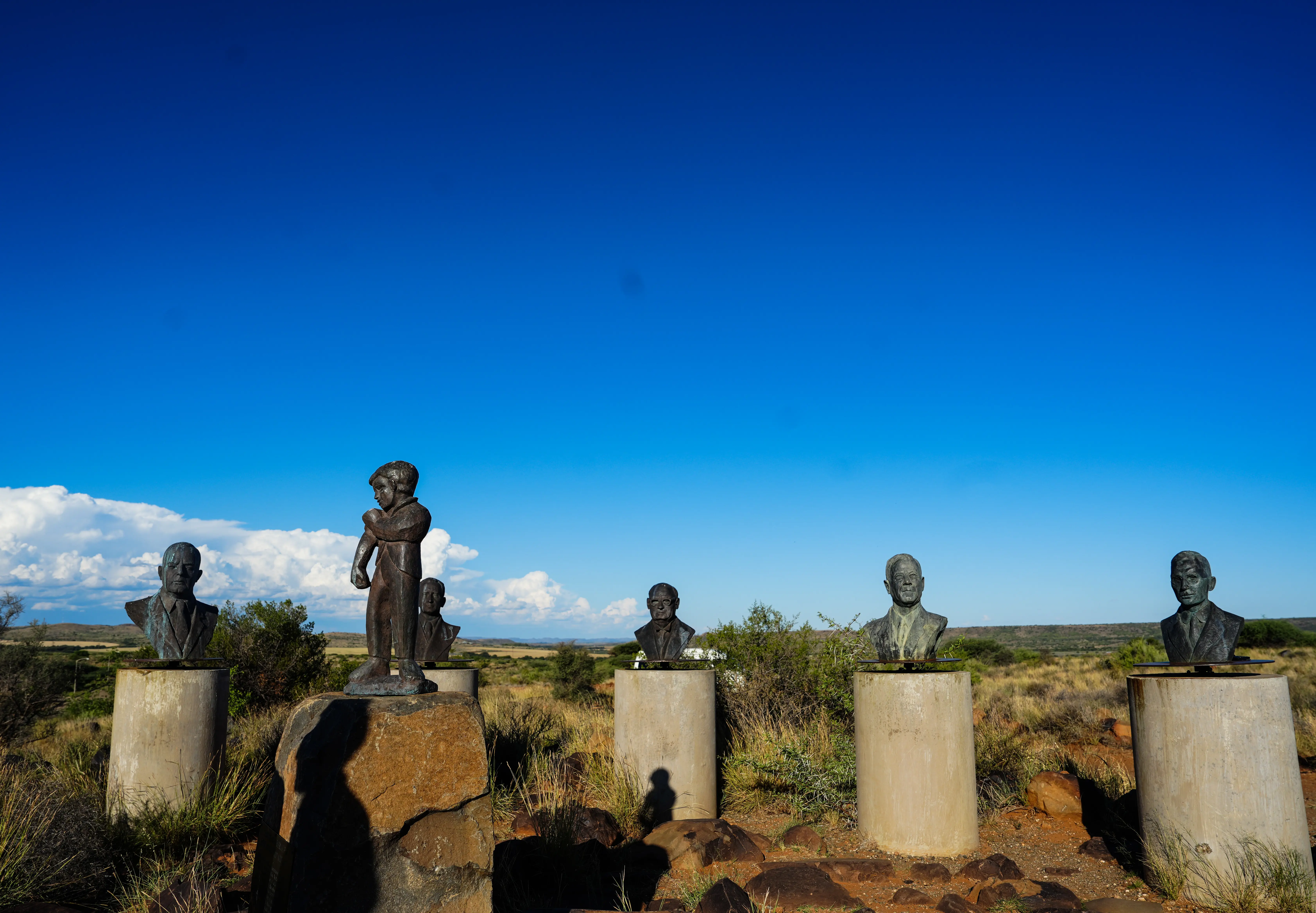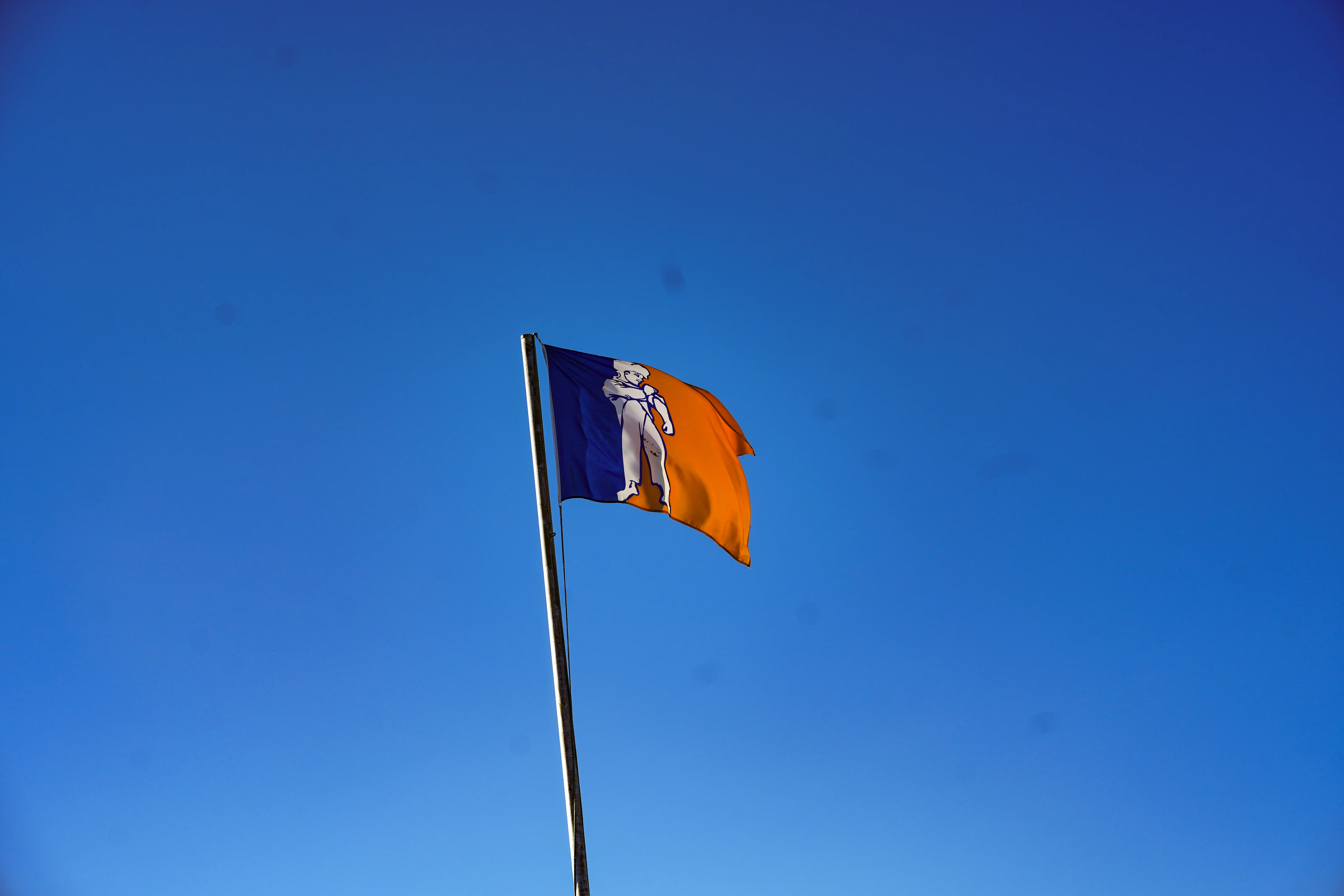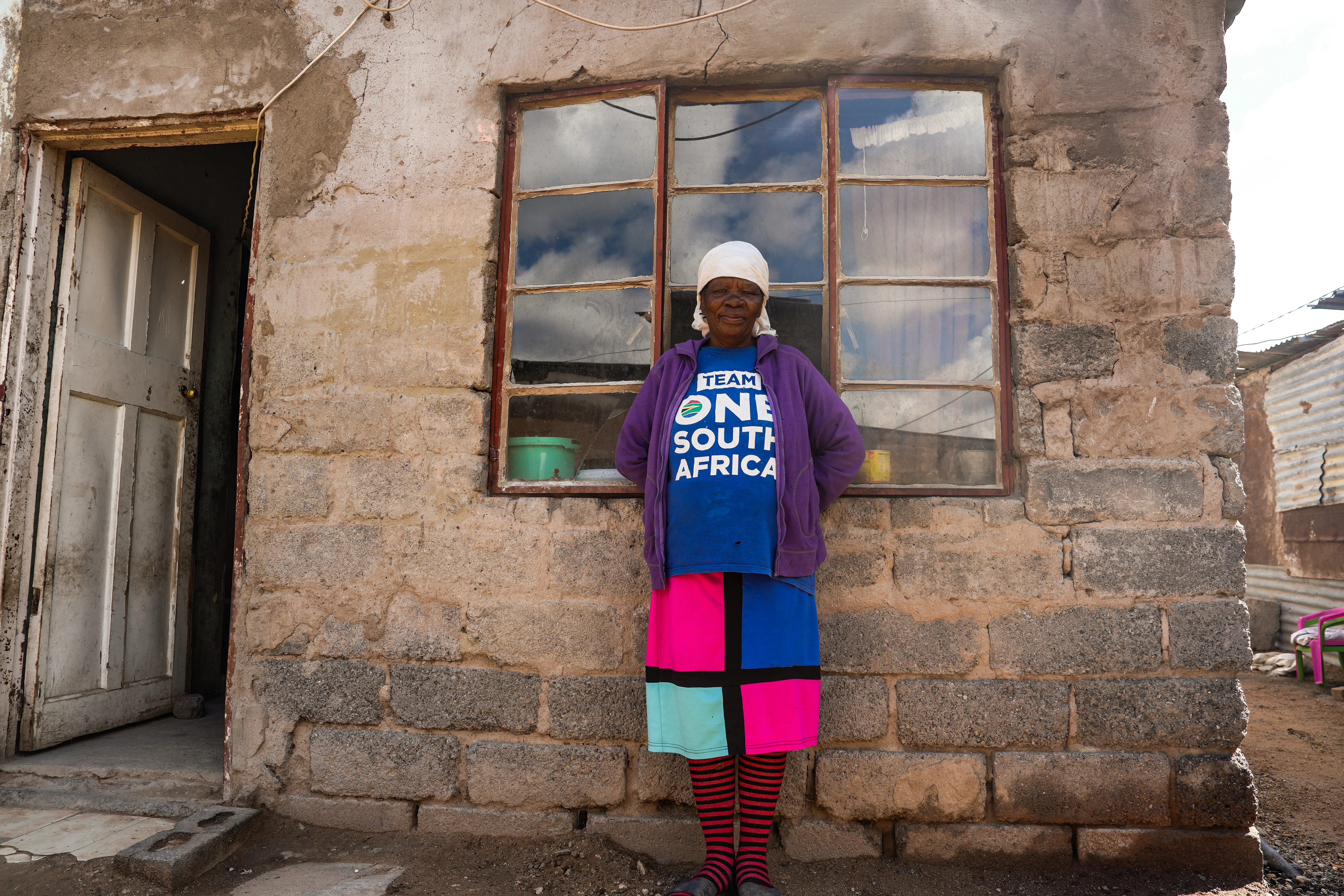'You'll find racists everywhere': Orania 'growing' 30 years into democracy
Despite the existence of the controversy-laden Northern Cape town flying in the face of the founding values of the new South Africa, Orania's leaders say their self-sustaining population continues to grow. Eyewitness News visited the area to find out more.

The controversy-laden Northern Cape town, Orania, which flies in the face of the founding values of the new South Africa. Picture: Kayleen Morgan/Eyewitness News
JOHANNESBURG - Thirty years after South Africa’s first democratic general election and as its seventh now approaches, Orania isn’t just still there - according to its leaders, it’s thriving.
Still today within the reserve of white Afrikaner separatists, the controversy-laden Northern Cape town flies in the face of the founding values of the new South Africa. And yet its leaders say it is growing.
Spokesperson Joost Strydom describes the town as being about the idea that "Afrikaners should take control of their own future".
"And that they should do it in a fashion where they are self-sustaining - in local service delivery - and in a context where they're in good relations with other people but in a way that they can fully embrace their own future," he says.
'YOU'LL FIND RACISTS EVERYWHERE'
He rejects what he maintains is a false narrative that theirs is a community of racists.
"Will you find racists in Orania? Most certainly. You’ll find racists everywhere in the country," he says.
He is firm, though, that "the Orania idea inherently isn't a racist idea" and is founded in the notion that Afrikaners have a right to cultural self-determination in terms of Section 235 of the Constitution.
He says their application criteria comprises a "very, very short list" which, while it includes being Afrikaans and subscribing to a Christian value system, does not speak to race.
But busts of apartheid presidents still loom over the town; its flag remains an inescapable hark back to the former South African flag; and, most significantly, people of colour living in the area say there is still an "unspoken rule" that they do not go to Orania.
One person who had broken this rule spoke to Eyewitness News of the "uneasy" feeling they had there, while another said they got "funny looks".
Regardless, more and more people are apparently embracing the concept.
Orania started out with just a handful of families when it was founded in 1991 and Strydom says they are now 3,000-strong.
Pieter Bisschoff, from the town’s development team, says further that they expect to hit the 12,000 mark in ten years’ time at this rate.
In the meantime, the town is a hive of construction activity. New residential stands are going up and there are various student housing and other commercial projects underway.
But what is behind this boom?

Busts of apartheid presidents in Orania. Picture: Kayleen Morgan/Eyewitness News

Orania's flag. Picture: Kayleen Morgan/Eyewitness News
'GREAT PLACE TO START A FAMILY'
There’s a strong focus on attracting students and Bisschoff says parents like the low crime rates and their zero-tolerance policy when it comes to drugs.
Twenty-one-year-old Dorette Le Cornu moved here from Carletonville a little over a year ago, to do a home-based care course at Orania’s own private college: Bo-Karoo Opleiding.
"When I saw it was in Orania, I was just more interested because I wanted to know more about the place. And I knew the culture and so on - it was our own people’s culture," she says.
She can see herself settling down here in the future, too,
"This is a great place to start a family and live and raise your kids in - with the safety and all that but also [being] within the culture and the community."
Strydom says many "Oranians" indeed reject the new South Africa - but not because they’re racist.
"They see the new South Africa as a system they don’t agree with. They have very quickly seen through this idealistic utopian idea of a rainbow nation where diversity is supported, celebrated, but being diverse is not allowed. Being an Afrikaner, being truly that, being a specific group, is not something celebrated. Being just in this grey South African mass - that’s celebrated,” he says.

People of colour in the Orania area say there's an 'unspoken rule' that they not venture too far into the town. Picture: Kayleen Morgan/Eyewitness News
IDEA OF ORANIA 'AN ILLUSION'
Despite the community’s leaders’ insistence to the contrary, Philosophy lecturer at the University of Pretoria, Keolebogile Mbede, says Orania’s rhetoric of cultural self-realisation remains "the same obfuscation of the so-called separate development that was espoused by the apartheid government".
She says it is still rooted in "general white anxiety" and the idea of "racial purity" and describes Orania as "a very visceral and accessible example of the folly of nation-building".
"But it is only that it is explicit, that makes it unique," she says, emphasising the persistence of some of the highest levels of inequality in the world in South Africa.
Relative to the rest of the country, Mbede says, Orania’s population has in fact not grown that much.
But while some may argue that is because the country generally rejects this kind of "explicitly racist" social formation, she adds, there is "another side of the equation".
"That kind of racism isn't under threat in South Africa," she says.
"The idea that Orania is an enclave is an illusion."